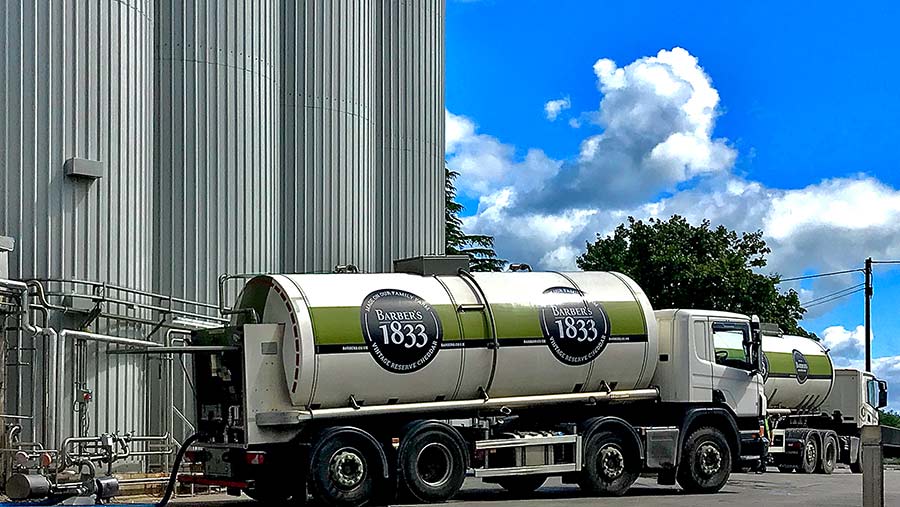Barber’s sustains profit despite volatile market
 © Barber's
© Barber's Barber’s Cheesemakers has recorded a pre-tax profit of £2.23m for the year to 31 March 2022.
AJ & RG Barber (Sales) latest accounts show that this is about 1% down on the year-earlier figure of £2.25m.
See also: Land Registry backlogs delay land and farm sales
Operating profits also showed a marginal (0.3%) decline from £2.32m in March 2021 to £2.31m for the 12 months to March 2022.
However, turnover increased by 4.9% to £87.96m, compared with £83.87m in 2021, and net assets rose by 4.8% from £39.3m to £41.2m in 2022.
The relatively stable picture had been achieved despite volatile operating conditions in the wake of Covid-19, the firm’s directors said.
Demand patterns were unpredictable during the first part of the financial year, when customer segments were only just beginning to return to normal trading.
The pandemic, coupled with post-Brexit labour curbs, had made recruitment challenging, particularly in the seasonal and temporary roles.
Resilience
The directors praised the resilience, flexibility and dedication of the company’s own workforce and the contribution of its suppliers throughout the chain.
They added that input inflation had become increasingly prominent by the end of the reporting period and acknowledged the difficulties faced by farmer suppliers.
It said that input costs and labour shortages limited sales volumes of cheese, which had to be controlled to preserve sufficient stocks of maturing product.
This meant opportunities to expand the customer base had to be passed up to ensure existing clients had sufficient product.
Sales values, reflected in the higher turnover figure for the year, were only raised in line with increased manufacturing and milk production costs, the directors’ statement explained.
Environmental commitment
The company said it would continue its policy of sourcing milk from low-intensity, outdoor grazing herds, which were fundamental to its environmental commitments.
However, Barber’s added that it was embarking on a business-wide programme of valuing the company’s natural capital assets, operations and supply chain.
This review would result in ambitious plans to further slash emissions and improve carbon sequestration in the future.
